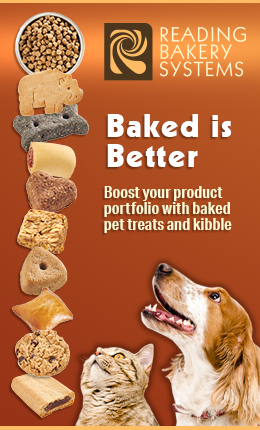It is a multidisciplinary field that, through living organisms, biological systems, and processes, develops products and technologies that benefit different ecosystems of society, people, and animals. Its main goal is obtaining additives and simulating the natural process of protein synthesis at the cellular level to produce specific protein molecules, as well as to improve the conservation of forage and silos. But its fields of application are very varied, so let's discover some of the most used ones:
Specific industries
Poultry farming
In its function related to protein, it is related to this industry with enzyme use, since using the appropriate ones make it possible to use cheaper raw materials, improving production costs. As an example, we can mention what happens with barley, with high contents of ß-glucans, which birds cannot digest because they lack the appropriate enzymes, and, when solubilized in the intestinal environment, they produce a high degree of viscosity, which hinders nutrient absorption, reducing diet digestibility. This results in dirty eggs, muscle injuries, and more.
Pig farming
In this case, enzymes are used to complete the enzymatic system of these animals, immature until they are 8-10 weeks old, which means that they cannot completely digest certain nutrients and substances. Enzymes also help with bacterial growth.
Ingredients
Probiotics and prebiotics
These are microorganisms, live or dead, extracts or a combination of some of them, used to promote or improve animal intestinal health and immune system. Prebiotics, for their part, are compounds that promote the growth of these beneficial microorganisms.
Acidifiers
Acidifiers are rather a type of biotechnology that allows the modification of biological systems' behavior.
Alternative proteins
One of the most dynamic areas of biotechnology applied to pet food is alternative protein development. Traditionally, animal proteins such as chicken, beef, and fish have been the basis of pet food formulation, but nowadays, topics such as sustainability and animal welfare impact the perception of these animals, and consumers have started demanding other alternatives. In this sense, biotechnology allows the creation of alternative proteins, such as those obtained from insects, plants, cell cultures, and laboratory-grown meat.
Personalized microbiomes
The microbiome is made up of various microorganisms that live in the digestive tract. It has gained pretty much scientific relevance in animal health in recent years. Biotechnology has enabled significant advances in understanding how microbiomes influence digestion, nutrient absorption, and pets' immune systems, for example.
Personalized food
There have already been cases in which manufacturers have used DNA analysis and microbiological studies to develop a food formulation for a specific pet. This allows the creation of food formulas that not only meet general nutritional needs but also address particular health problems of animals with delicate health or highly specific conditions.
Improved Omega-3
Omega-3 fatty acids are essential for pet health, but are traditionally obtained from sources such as fish, which come from the aquaculture industry. Thanks to biotechnology, genetically modified crops are being developed, such as canola, that produce high levels of this fatty acid, which positions it as a more sustainable source to complete formulations.
Sustainability and environmental impact
One of the most significant challenges for the pet food industry today is its environmental impact. Biotechnology presents itself as an innovative solution that can, among other items, facilitate carbon footprint reduction and minimize production waste.
Production waste
An emerging approach is the use of organic waste to produce pet food ingredients. Through biotechnological processes such as fermentation, waste from the food industry can be transformed into proteins, lipids, or carbohydrates. These can be used in new pet food formulas, which contribute to reducing waste and having a more sustainable production chain.
Biodegradable and even edible packaging
Biotechnology is also being applied to developing materials for biodegradable or even edible packaging, managing to address one of the main problems associated with sustainability and the production of non-renewable or recyclable waste.
Innovations in food safety
Genetic optimization
Biotechnology is playing a crucial role in improving the ingredients used in pet foods. Today, through genetic modification, it is possible to develop crops with improved nutritional profiles, achieving greater resistance to diseases and a lower need for pesticides or fertilizers.
Biosensors for pathogen detection
We are seeing the development of technologies based on biosensors to detect the presence of pathogens such as Salmonella or E. coli used in real-time during food manufacturing, this will allow faster detection and immediate response to conditions, thereby reducing the risk of disease outbreaks in the target population.
Improved natural preservatives
Biotechnology has also allowed the development of natural preservatives, used to prolong food shelf life, avoiding the use of chemical additives. These derivatives of plants and other natural organisms are effective in preventing the growth of mold and bacteria, which improves and prolongs final product conservation.
Conclusion
Advances in biotechnology are transforming the pet food industry. This discipline offers innovative solutions to improve pet health, promote sustainability, and ensure food safety. As it continues to evolve, it will keep creating a path to optimize the industry's proposals for pets and, therefore, we will continue to grow together as a market that seeks to offer increasingly safer, efficient, specific, and sustainable solutions.
Source: All Pet Food Magazine
You could be interested: High-level nutrition: The revolution in pet health
About author
María Candelaria CarbajoI’m a creative, interdisciplinary person, translator, and editor. I collaborate in producing and writing creative, high-impact projects to promote cultural exchange, transmit differential values, and connect with people/the audience. Likewise, I enjoy teamwork and joining forces, experiences, and knowledge to bring the world all the potential of those ideas that seek to impact people’s lives positively.









































